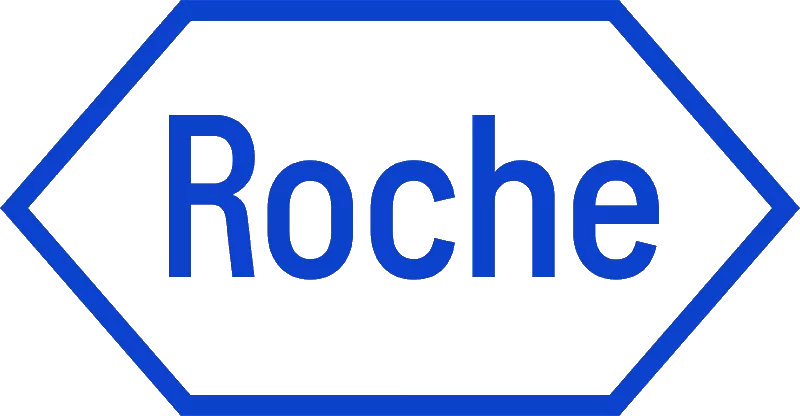
ENHERTU (fam-trastuzumab deruxtecan-nxki) is a HER2 directed antibody drug conjugate (ADC) being jointly developed by Daiichi Sankyo and AstraZeneca. It is designed using Daiichi Sankyo’s proprietary DXd ADC technology, which combines the HER2 targeting capabilities of trastuzumab with a potent cytotoxic payload. ENHERTU is approved in multiple countries for the treatment of various HER2-expressing cancers, including metastatic breast cancer and gastric cancer. It is currently being investigated across a range of HER2-expressing cancers in a broad clinical development program.
Breast cancer is a malignant tumor that originates in the cells of the breast, commonly affecting the ducts and lobules. It is the most common cancer among women worldwide, though it can also occur in men. The development of breast cancer involves the abnormal growth of breast cells that can invade surrounding tissues and spread to other parts of the body (metastasize). Risk factors include genetic mutations (such as BRCA1 and BRCA2), family history of breast cancer, hormonal influences, and certain lifestyle factors such as alcohol consumption and obesity.
Early detection through screening methods like mammography, breast self-examinations, and clinical breast exams is crucial for effective treatment and improved survival rates. Treatment options vary based on the stage and subtype of breast cancer and may include surgery, radiation therapy, chemotherapy, hormone therapy, and targeted therapy. Advancements in personalized medicine and ongoing research continue to enhance the understanding and management of breast cancer, leading to more tailored and effective treatment approaches.
Companion diagnostic testing plays a crucial role in determining the appropriateness of ENHERTU (fam-trastuzumab deruxtecan-nxki) for treating breast cancer by identifying patients whose tumors overexpress the HER2 protein. This is done through tests such as immunohistochemistry (IHC) and in situ hybridization (ISH), which measure HER2 protein levels or gene amplification in breast cancer tissue samples. Only patients with HER2-positive breast cancer, confirmed through these diagnostic tests, are eligible for treatment with ENHERTU. This ensures that the therapy targets the specific molecular characteristics of the tumor, leading to better treatment outcomes and minimizing unnecessary exposure to the drug for patients unlikely to benefit.
These companion diagnostic tests are critical because HER2-positive breast cancer tends to be more aggressive, but it also responds well to therapies like ENHERTU that specifically target the HER2 protein. By accurately identifying HER2-positive patients, these tests enable personalized treatment plans that improve efficacy and safety, aligning with the principles of precision medicine.

Order this test through your EHR if you have an interface with Labcorp, via Labcorp Link, or by paper requisition.

This companion diagnostic was developed by an IVD manufacturer as a kit. This is a valid FDA approved test if utilized by 3rd party diagnostic labs who have validated the test using the kit on the specified platform. It is not directly orderable from the manufacturer.
ENHERTU (fam-trastuzumab deruxtecan-nxki) is a HER2-directed antibody-drug conjugate (ADC) used to treat adult patients with HER2-positive metastatic breast cancer. It is indicated for patients who have received two or more prior anti-HER2-based regimens in the metastatic setting.
ENHERTU targets the HER2 protein on the surface of cancer cells. The drug binds to HER2, is internalized by the cancer cell, and releases a potent chemotherapy agent that kills the cancer cells from within. This targeted approach helps control and reduce the spread of HER2-positive breast cancer.
Patients with HER2-positive metastatic breast cancer who have previously received at least two anti-HER2 therapies are eligible for ENHERTU. Eligibility is determined through companion diagnostic testing that confirms HER2 positivity in the cancer cells.
Common side effects of ENHERTU include nausea, fatigue, vomiting, hair loss, decreased appetite, and low levels of blood cells. Patients should discuss potential side effects with their healthcare provider to understand the risks and management strategies.
ENHERTU is administered as an intravenous (IV) infusion. The specific dosage and treatment schedule are determined by the healthcare provider based on the patient’s medical condition and response to previous therapies.
Companion diagnostic tests are essential for identifying breast cancer patients who will benefit from ENHERTU. These tests measure HER2 protein levels or gene amplification in tumor cells, ensuring that only patients with HER2-positive cancers receive the treatment. This improves the efficacy and safety of the therapy by targeting patients who are most likely to respond.

Daiichi Sankyo is an innovative global healthcare company contributing to the sustainable development of society that discovers, develops and delivers new standards of care to enrich the quality of life around the world. With more than 120 years of experience, Daiichi Sankyo leverages its world-class science and technology to create new modalities and innovative medicines for people with cancer, cardiovascular and other diseases with high unmet medical need. For more information, please visit www.daiichisankyo.com.

AstraZeneca (LSE/STO/Nasdaq: AZN) is a global, science-led biopharmaceutical company that focuses on the discovery, development, and commercialisation of prescription medicines in Oncology, Rare Diseases, and BioPharmaceuticals, including Cardiovascular, Renal & Metabolism and Respiratory & Immunology. Based in Cambridge, UK, AstraZeneca operates in over 100 countries and its innovative medicines are used by millions of patients worldwide. Please visit astrazeneca.com and follow the Company on social media @AstraZeneca.